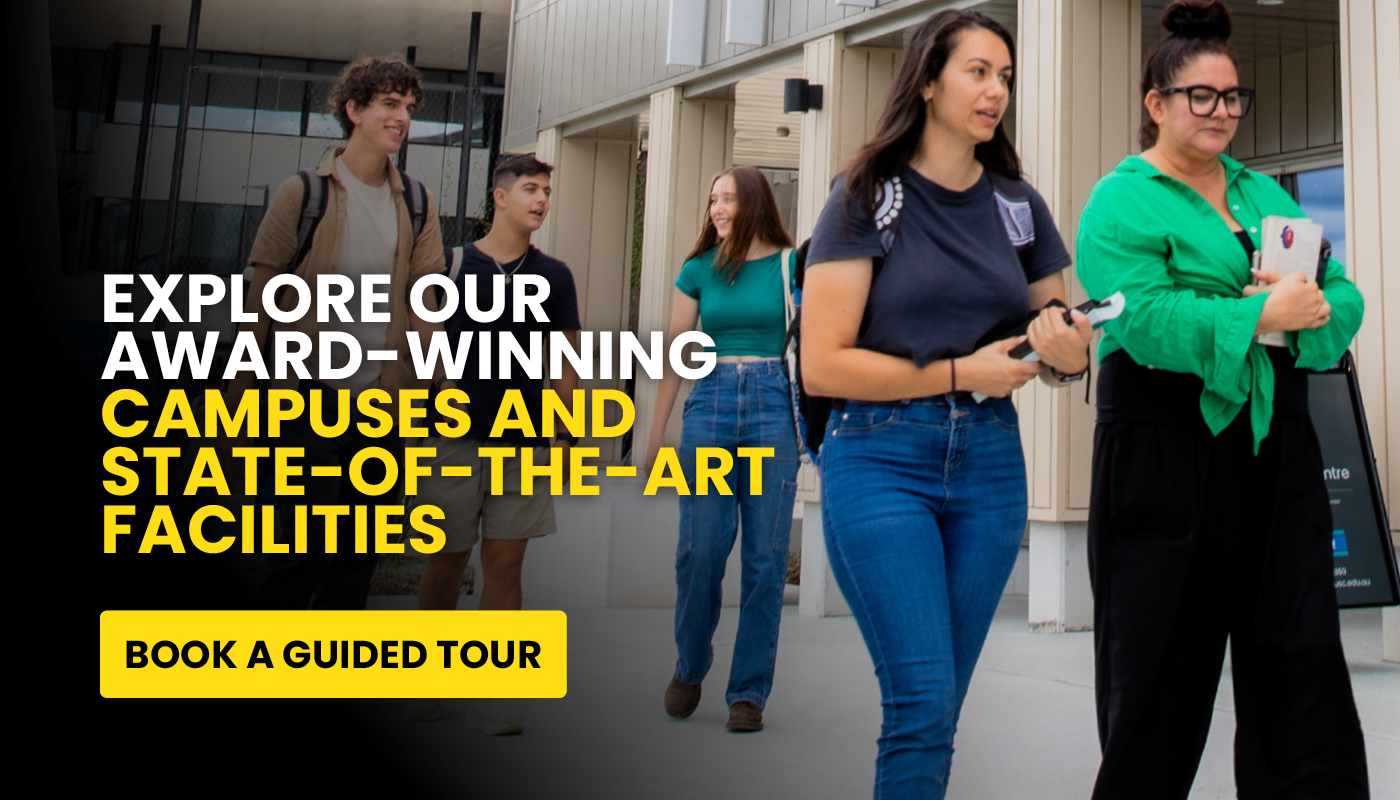Take on the world with real world projects
Arts and humanities is a wide-ranging, multidisciplinary study area examining human societies and cultures through mediums like art, language, and history.
Become a creative and critical thinker
Learn how to communicate effectively, build meaningful relationships and think critically and creatively. You'll build core communication and problem-solving skills that will remain valuable in a period of global disruption and change.
Learn from the best at UniSC, which has a five-star rating for teaching.* And the best part? We're No.1 public university in Queensland for undergraduate skills development in humanities.*
*Good Universities Guide, 2024/25
Bachelor Degree
An undergraduate degree is your first degree in a particular subject. This is usually a bachelor’s degree (generally three years) or a bachelor’s degree with honours (generally four years).
When you choose to study the Bachelor of Arts, you'll have an exciting array of arts majors and minors to choose from, allowing you to tailor your studies to fit your career aspirations.
Choose a major such as:
Creative Writing and Publishing Criminology and Justice English Geography History International Studies Japanese In‑country Japanese In‑country (Extended Major) Japanese Studies Journalism Screen Media Sociology Sustainability‑Society Theatre and Performance
Meet Candice Fox
Award winning Australian crime fiction novelist who completed her BA(Hons) in 2011 and her BEd/BA in 2010 at UniSC.
Why study Arts?
An arts degree is versatile and flexible, so you can study a range of subjects that interest you. Mix and match courses in literature, history, psychology, languages, and loads of other areas. It's like a choose-your-own-adventure degree!
Learn how to think critically, analyse and interpret complex information, and communicate your ideas effectively - all skills highly sought after by employers in a wide range of industries. You'll be exposed to different perspectives, cultures and ideas so you can broaden your horizons and challenge your assumptions. Plus, you'll be learning from passionate and knowledgeable lecturers who really love their subject areas.
An arts degree can be a great foundation for a wide range of careers. You can go on to work in fields like journalism, education, public policy, arts and culture, and more. Many employers value the well-rounded education an arts degree provides, so you may find yourself with unexpected job opportunities.
You might also be interested in...
You may also be interested in the field of urban design and town planning, because while it's not strictly classified under 'arts and humanities,' it is deeply enriched and informed by the arts and humanistic insights. This results in urban environments that are both functional and culturally significant, meaningful, and reflective of human values and experiences.
Combined degree
Gain a career advantage with a double degree.
Honours
Add one year for an Honours Degree
This program is 'End-on honours' which means one year of study, in addition to your bachelor degree. You can apply for a one-year honours program after you have completed a Bachelor of Arts.
Postgraduate
Higher Degree by Research
Need advice on what to study or how to apply?
Our Student Central team can help.
Call us +61 7 5430 2890
Email us information@usc.edu.au
For locations and opening hours, visit Student Central
Meet Katja Dedekind: Bachelor of Arts student and triple Paralymic bronze medallist
Katja Dedekind shares how she first got into swimming as recovery, and now is achieving her dreams as a Paralympian. She balances training at UniSC's sports precinct with olympic-standard pool with her study part time in a Bachelor of Arts with majors in creative writing and publishing.






